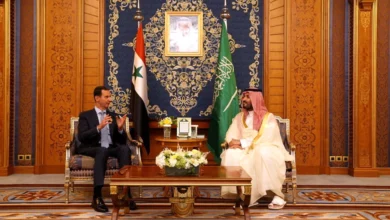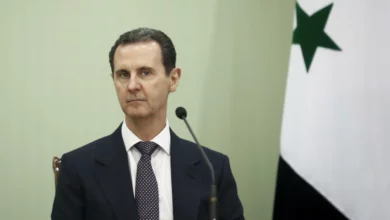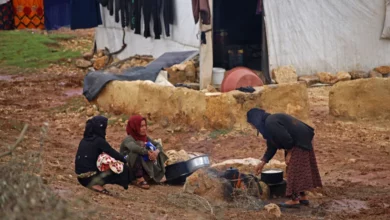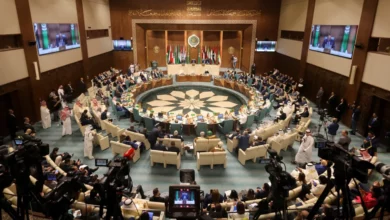
Russia's foreign minister told a senior Syrian diplomat on Thursday that the crisis in Syria must be resolved by dialogue rather than force and warned time was running out to reach a peaceful settlement.
Sergei Lavrov emphasized the urgent need to end the 21-month-old conflict during a meeting with Syrian Deputy Foreign Minister Faisal Makdad, Russia's foreign ministry said.
"The Russian side underscored the lack of an alternative to a peaceful resolution of [Syria's] internal conflict through a broad inter-Syrian dialogue and political process," a statement said. But it made no mention of ways to achieve those goals.
World powers believe Russia, which has given Syrian President Bashar al-Assad military and diplomatic aid to help him weather the uprising against him, has the ear of Syria's government and must be a central player in peace talks.
Lavrov called for robust efforts to hammer out a solution based on an agreement reached by world powers in Geneva in June that called for a political transition.
"Considering what is going on in Syria, the chances of reaching such a solution … are decreasing. But there is still a chance and we must fight for it," Interfax quoted Lavrov as saying in an interview.
"The alternative to a peaceful solution is bloody chaos. The longer it continues, the broader its scale and the worse [it will be] for everyone."
Moscow has tried to distance itself from Assad in recent months and has said it is not propping him up.
Russia is to host the international envoy seeking a solution to the crisis, Lakhdar Brahimi, on Saturday. Brahimi met Assad during a five-day trip to Damascus that ended on Thursday.
The envoy is trying to broker a peaceful transfer of power in Syria, where more than 44,000 people have been killed in a revolt against four decades of Assad family rule that began with peaceful protests in March 2011 but has become a civil war.
Past peace efforts have floundered, with world powers divided over what has become an increasingly sectarian struggle between mostly Sunni Muslim rebels and Assad's security forces, drawn primarily from his Shia-rooted Alawi minority.
Syrian and Lebanese sources said Makdad had been sent to Moscow to discuss details of a peace plan proposed by Brahimi.
Makdad gave a detailed report to Russian diplomats about efforts to end the conflict and Brahimi's meetings in Damascus, Russia's foreign ministry said.
‘Trying to feel a way out’
At a weekly briefing, foreign ministry spokesman Alexander Lukashevich played down the idea that a specific new proposal agreed by Moscow and Washington was on the table in Moscow talks. "There has not been and is no such plan," he said.
"In our talks with Mr. Brahimi and with our American colleagues, we are trying to feel a way out of this situation on the basis of our common plan of action that was agreed in Geneva in June," Lukashevich said.
Although the Kremlin has tried to distance itself from Assad, Lukashevich reiterated its stance that Assad's exit from power could not be a precondition for negotiations.
Setting such a condition, he said, would violate the terms of the agreement reached in Geneva on 30 June, which called for a transitional government but left Assad's role unclear. The United States said it sent a clear message that he must quit and Moscow said it did nothing of the kind.
Lukashevich said Russia continued to believe there was "no alternative" to the Geneva agreement and repeated accusations that the United States has reneged on it.
"Our American colleagues and some others … have turned sharply from this position, by 180 degrees, supporting the opposition and conducting no dialogue with the government — putting the opposition in the mood for no dialogue with the authorities but for overthrowing the authorities," he said.
"The biggest disagreement … is that one side thinks Assad should leave at the start of the process — that is the US position, and the other thinks his departure should be a result of the process — that would be the Russian position," said Dmitry Trenin, head of the Carnegie Moscow Center think tank.
But Trenin said battlefield gains made by the Syrian rebels were narrowing the gap between Moscow and Washington.
On Saturday, Lavrov said that neither side would win Syria's civil war and that Assad would not quit even if Russia or China told him to. Another Russian official had earlier acknowledged that Syrian rebels might win.




